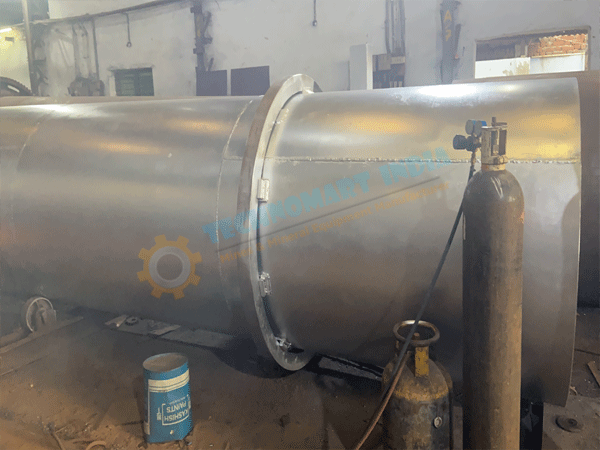

Lime Calcination is a process where limestone (CaCO₃) undergoes thermal decomposition in a rotary kiln, converting it from limestone (CaCO₃) to quicklime (CaO) with temperatures heated to over 900°C. By this method, carbon dioxide is separated from limestone, producing reactive and highly pure lime that’s used in many commercial settings. Modern rotary kiln systems are carefully designed so that the heated lime is uniform in quality.
Rotary kilns from Technomart India are manufactured to give efficient lime calcination results. We have systems that maintain stable high temperatures, allow you to select desired processing conditions, and automate controls for constantly high-quality calcination outcomes. Since our kilns are strong and power-saving, they can process many kinds of limestone with low operational costs and high daily volumes.

| Parameter | Value |
|---|---|
| Kiln Diameter | 1.8 m to 4.2 m |
| Kiln Length | 20 m to 70 m |
| Operating Temperature | 900°C to 1300°C |
| Material Capacity | 5 TPH to 60 TPH |
| Feed Size | 10 mm to 150 mm |
| Fuel Type | Coal / Gas / Oil / Biomass |
| Shell Material | Mild Steel with high-temperature refractory lining |
| Drive Mechanism | Girth Gear & Pinion or Chain Drive |
| Automation System | PLC/SCADA with advanced thermal controls |
| Installation Slope | 1.5° to 4° |